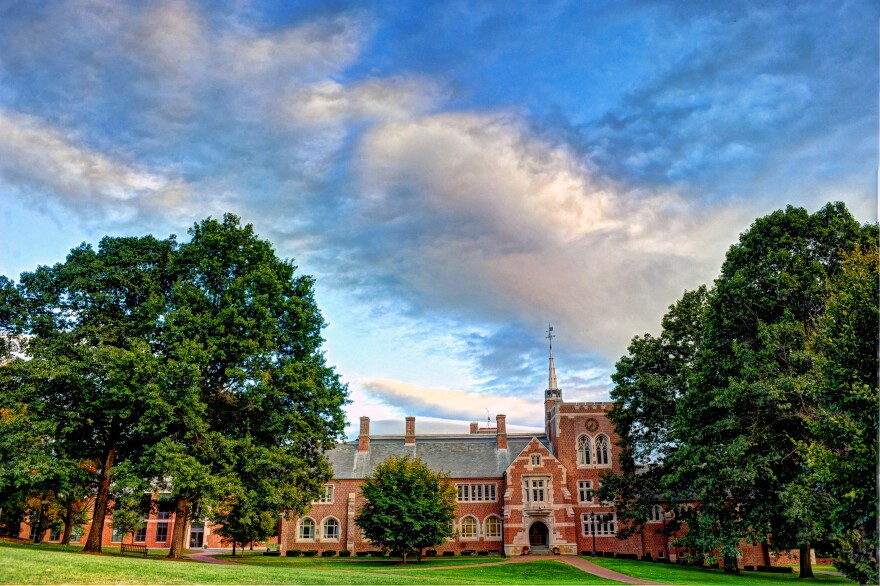The New Hampshire Attorney General’s office announced Thursday it’s launching a criminal investigation into St. Paul’s School.
The elite boarding school has a history of sexual abuse by faculty, which it documented in a report published in May. More recently, sexual misconduct allegations have been made toward students on the campus, including high school seniors taking part in ritualistic games of sexual conquest.
To understand how the state’s involvement alters the legal landscape, NHPR’s Peter Biello spoke to Buzz Scherr, professor of law at the University of New Hampshire.
The Attorney General’s investigation will focus on child endangerment and obstruction of justice, at least initially. What kind of evidence will they be looking for in relation to those two issues?
The primary kind of evidence they’re going to be looking for is, to what extent did St. Paul’s school officials know about what was going on at St. Paul’s over the years, in terms of sexual abuse by teachers?
To the extent that school officials had notice of this kind of conduct and chose not to act, and chose not to report it under the reporting statute in New Hampshire, that’s going to get them a decent way down the path toward criminal prosecution.
So will they be looking for individuals employed by the school who may have obstructed justice?
That’s one approach to it. In theory, they can also look at the school as an entity itself, and see if the failure to act was so pervasive that it’s a failure on the part of the school to transact its duty of care to students at the school.
The best analogy here is the child sexual abuse issues that the Catholic Church had, where they investigated individuals and the church for failing to report or covering it up, so that’s the kind of context we should be thinking of it in.
How similar is this to those other cases at the Catholic Church and other private schools in New England? Is St. Paul’s different in any important way?
I’m not aware that there’s anything about the St. Paul’s circumstance, based on what’s available publicly, that makes it different from what’s going on at Phillips Exeter or any number of other private schools where this kind of behavior has been going on.
Broadly, what’s been going on at these prep schools is similar to what has gone on in the Catholic Church in this fundamental way: They’re both closed cultures, where children are more vulnerable. There’s more privacy, there’s more secrecy. And you not infrequently, be it the Catholic Church, be it summer camps, be it prep schools, in those sorts of closed cultures, you see this sort of thing happening.
Why would the Attorney General’s office get involved now, and not when we first learned of the so-called senior salute, that alleged game of sexual conquest.
I think what the AG’s office is looking at is something beyond the senior salute. What they’re looking at more, if I understand, is they’re looking at behavior by teachers. The report that came out earlier this year about sexual abuse at St. Paul’s articulated problems with chaplains, with teachers over the last thirty or forty years, so my guess is they’re looking at that behavior by teachers.
Most recently, students were involved in the incident that’s been described as these young boys at St. Paul’s allegedly writing their relationships with other students on a crown distributed by a fast food restaurant—
Yeah, and maybe it was that that provoked the Attorney General’s office to ask ,wait a minute, what is going on at St. Paul’s? We don’t know, that’s certainly possible.
Sure. The Concord Police recently opened an investigation into that incident. If they’re already investigating, what would the Attorney General’s investigation contribute that the Concord Police couldn’t?
My guess is what may be happening—again I’m speculating a bit here—what might be happening is the Concord Police are looking at individual students involved in that recently reported behavior, while the AG’s office is looking more broadly at the school, both in terms of this behavior, the senior salute, and the behavior by teachers over the last thirty or forty years.
That’s a much broader look at the responsibility of the school for what has been transpiring at St. Paul’s over the last several decades.



